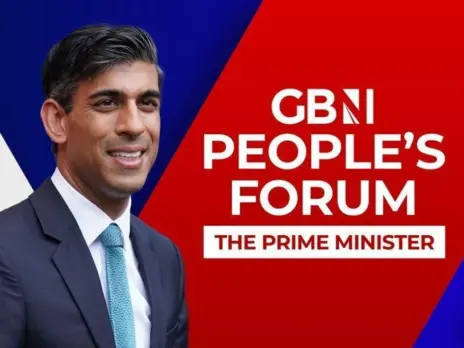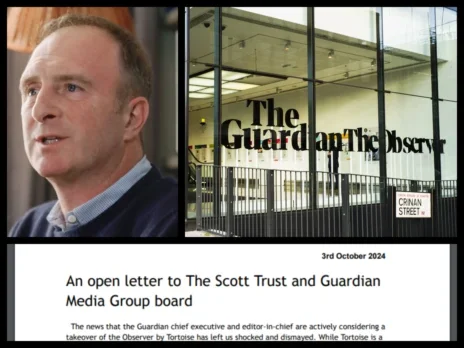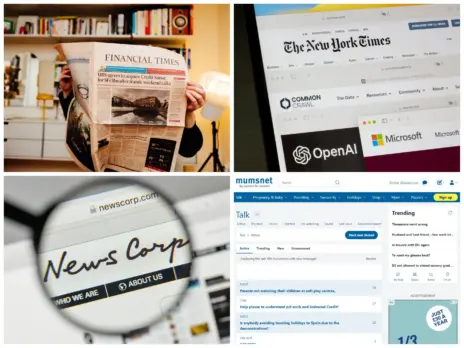
Observer staff have been warned that “difficult decisions” lie ahead if the Tortoise deal to buy the title does not go ahead, according to the latest sale update.
Guardian Media Group chief executive Anna Bateson said The Observer is loss-making when shared costs are taken into account and that it is forecast to become loss-making regardless within three years.
According to a financial statement for the year to August 2024, the Observer newspaper made annual revenue of £16.4m meaning it made a “contribution” to GMG of £3.4m, excluding shared costs.
In her email to staff, Bateson said GMG was already “beginning to think about the future of the title, given its financial situation and the fact it is a UK-only, Sunday print newspaper” before Tortoise Media made its bid for the title just over a month ago.
Tortoise Media has promised £25m of investment in The Observer over five years. No additional purchase price has yet been mentioned publicly.
Bateson described this as “a serious offer” which would “create a more sustainable business strategy for The Observer”.
Sale latest: The Observer would become main Tortoise Media brand
Talking about the detail of the Tortoise bid, she said: “Tortoise Media propose that they would continue to publish the Observer as a Sunday newspaper, with business, sport and international coverage and an emphasis on original journalism.
“The Observer would be the brand for the media organisation and all the existing sections – Observer Magazine, New Review and OFM [Observer Food Monthly] – would be retained. In addition, Tortoise would invest in creating a dedicated digital presence for the Observer, as well as newsletters, podcasts and events.”
Observer insiders question whether Tortoise has the funding in place to cover business, sport and international news – all of which currently come from Guardian journalists.
Bateson said a final decision on whether or not the deal will go ahead is expected before Christmas. Insiders question why there is such haste to get the deal done to what appears to be a Tortoise-imposed deadline.
The Scott Trust, which owns The Guardian, has been accused of betraying The Observer and its journalists by seeking to sell the title.
But Bateson said: “If the deal goes ahead, ensuring that there will be an ongoing alignment of values is extremely important. The Scott Trust believes that considering the offer is entirely consistent with its responsibilities to liberal journalism.
“The Observer would become the sole title and focus for Tortoise, thus enhancing liberal journalism and increasing plurality.”
Insiders maintain that statements from The Scott Trust had given the impression that The Observer was subject to the same protections as The Guardian. For example at the time of its purchase in 1993 then-Scott Trust chair Hugo Young said The Guardian’s “trust safeguards will be fully extended to The Observer”, although management believe this related only to the newspaper’s editorial independence.
Observer staff warned status quo will not return
Bateson warned that life would not go on as before for Observer staff if the Tortoise deal is abandoned.
She said: “If the deal does not go ahead, the status quo is not an option. Kath [Viner, The Guardian editor], in her email at the beginning of the summer, committed to a strategic audit of the Observer which would involve some difficult choices – and that would need to happen urgently.
“We want to be plain about this because we all have a responsibility to be honest about the growth prospects of a UK only, Sunday, print title when it is competing with investment in the future of the Guardian.”
One Observer insider said the title was no more print-only than the The Guardian given the fact all its content was published online and contributed to the digital side of the business.
On the Observer’s current financial position, Bateson said: “We have shared an Observer-only P&L (profit and loss statement) with staff. Although the Observer has performed well in terms of its market share, its circulation is, like all newspapers in print, in continual decline and the title is forecast to be loss-making within three years, if not sooner.
“If shared costs, such as technology, ad sales, marketing, rent, finance and HR as well as sport, international and business journalism, were allocated, the Observer would already be loss-making.
“This is why we talk about needing to make difficult decisions if the deal does not go ahead. In other words, the Observer is likely to have more freedom to be financially sustainable if it is separated from the Guardian.”
One insider said that the tone of this felt “quite bullying” because it was effectively telling Observer staff “things will be horrible if you stay”.
It is still unknown who exactly is financially backing the deal, but Bateson said: “An initial assessment of Tortoise Media’s existing investors found them fit and proper to proceed to this point.”
Scott Trust would retain Observer stake
If the deal goes ahead, the Scott Trust will retain a small stake in The Observer which would be “a sign of confidence in the future success of the title”, Bateson said.
The Observer would be covered, she said, by Tortoise Media’s existing commitments to editorial independence.
The existing NUJ “house agreement” would transfer across with The Observer. This means staff would be protected from compulsory redundancies (but not from losing their jobs if the standalone business were to fail).
Email pged@pressgazette.co.uk to point out mistakes, provide story tips or send in a letter for publication on our "Letters Page" blog




